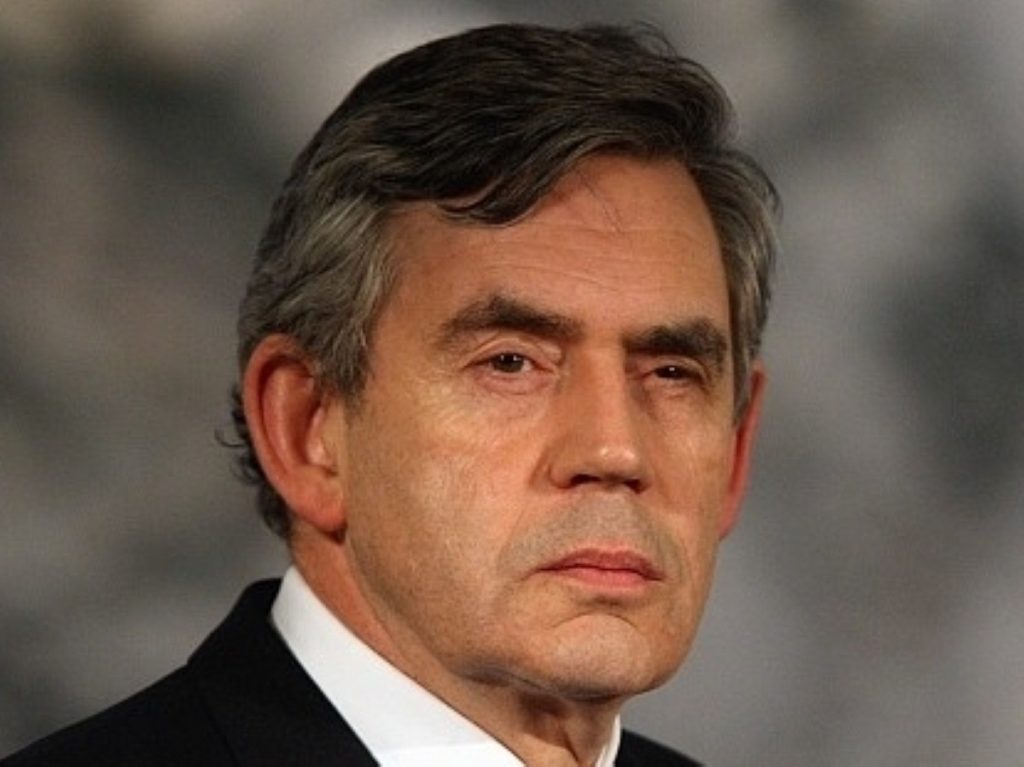Sketch: How the clunking are fallen
Gordon Brown looked as jittery as ever before he resumed his parliamentary career last night. The agonies of power haven’t yet fully worn off.
The former prime minister had chosen to make his debut speech as a backbencher in as low-key a setting as possible – a Monday night adjournment debate. These ‘and finally’ half-hour sessions, which wrap up every Commons day, are an opportunity for a lowly MP to grill a minister on a topic of their choosing. The chamber is usually deserted as only a few MPs bother to turn up.
Not so last night. MPs on both sides of the House couldn’t bear to drag themselves away from the sight of their former arch-nemesis brought so low. So, as Thomas Docherty outlined the vital importance of carrying out maintenance work on Britain’s new aircraft carriers at Rosyth shipyard, they flocked into the Commons, chattering too loudly to each other and staring gleefully at the well-built Labour MP sitting in the third row back.
This, of course, was the man who half a year ago had access to the nuclear codes. Awkward conversations with world leaders were only a phone call away. Now, after dashing off an insult to a non-bigot here or there, his grip on power had finally been removed. He was, it was painfully clear, an ex-prime minister.
Sitting on the third row, by the way, was a clever move. It allowed him to be surrounded by supporters, back in the bosom of the party he had kept in power for 13 years. It didn’t matter that the MP sitting next to him was wearing her parliamentary pass. The important point was they were there for him. The attendance was impressive; on the front bench Jim Murphy, Sadiq Khan, Hilary Benn, Stephen Timms and Chris Bryant listened carefully. One of Brown’s loyalist allies, Tom Watson, sat on the furthest row back listening from afar. Directly above him, in the section of the gallery reserved for peers, ardent Brown fan George Foulkes looked on.
This was no one-sided affair. The Tory presence packed out the other half of the Commons, too, making it seem as busy as in prime minister’s question time. Perhaps that explained it. They had automatically turned up to heckle and shout abuse whenever Brown appeared in the Commons. Obviously they had forgotten to turn their autopilot off.
A complacent-looking Eric Pickles and Alan Duncan (this pair make complacency look like an art-form) had appeared, exceptions to the contemptuously empty government front bench.
The speech, when it came, was nothing to write home about. The ‘hear hear’ from Labour MPs was as reassuring as it ever was. The opening with tributes to fallen soldiers – “they will never be forgotten and their influence lives on” – was as prime ministerial and moving as ever. It certainly silenced the hecklers. From then on they listened in silence as Brown droned on. Only when he suggested the military rationale behind them had nothing to do with the fact his constituents would benefit from them did they jeer.
Not everyone cared. But this was a man whose career had dominated British politics for two decades, whose Commons performances had until six months ago been scrutinised remorselessly by all in British politics. He mattered. His mistakes, strengths, errors and resilience shaped the fate of the Labour party and, by extension, that of the Conservatives. Now it was all over. Brown, who made the Bank of England independent, abolished boom and bust, schemed and plotted, saved the world and called someone a bigot – was now reduced to Brown, the backbencher. How the mighty are fallen.





-01.png)